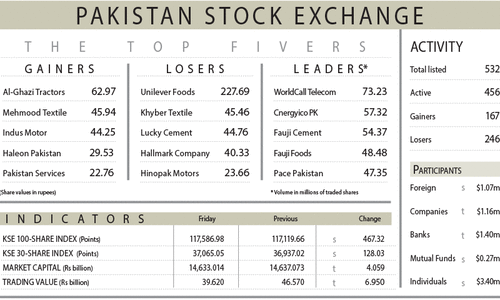BASEL (Switzerland), Jan 7: Global economic growth is “robust” but inflation risks remain as markets absorb the impact of the US subprime home loan crisis and higher food prices, European Central Bank chief Jean-Claude Trichet said on Monday.
“Food is a very big problem” stoking inflationary pressures, along with higher energy costs, stock market corrections and the risks of protectionist trade policies, Trichet said in his role as spokesman for the G-10 group of central bankers meeting here.
The ECB meets on Thursday to decide whether or not to raise interest rates.
Trichet had said on Saturday that the bank was ready to act to curb inflation, adding this was expected to remain “significantly above” 2.0 per cent in the eurozone in the near future.
The ECB has an inflation target of slightly below 2.0 per cent.
The bank chief also said on Monday that “we have to look very carefully at the business model of banks” in the wake of the billions of dollars in losses incurred by some of the world’s leading financial institutions due to their exposure to the US high-risk mortgage sector.
Banks and investment funds have made losses on trading in mortgage-backed securities, complicated financial instruments whose value is linked to US home loans.
When large numbers of US home owners began defaulting, the value of these securities plummeted and global money markets dried up as banks became nervous about lending to each other.
Switzerland’s UBS, one of the most prestigious names in Swiss and European banking, last month announced a record write-off of about 10 billion dollars (6.8 billion euros) linked to its subprime exposure.
In Britain, mortgage lender Northern Rock suffered the first run on a bank in more than a century due to its subprime exposure, after it was forced to apply to the Bank of England for emergency funding in September.
Despite the downside risks, “at the global level we see confirmation that growth is continuing at a pace that is quite robust,” Trichet said.
The ECB head said coordinated actions by central banks such as his own, the US Federal Reserve, the Swiss National Bank and the Bank of England to inject much-needed liquidity into the financial markets had been “efficient.”—AFP













































Dear visitor, the comments section is undergoing an overhaul and will return soon.